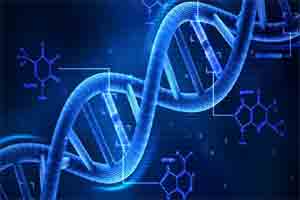- Home
- Editorial
- News
- Practice Guidelines
- Anesthesiology Guidelines
- Cancer Guidelines
- Cardiac Sciences Guidelines
- Critical Care Guidelines
- Dentistry Guidelines
- Dermatology Guidelines
- Diabetes and Endo Guidelines
- Diagnostics Guidelines
- ENT Guidelines
- Featured Practice Guidelines
- Gastroenterology Guidelines
- Geriatrics Guidelines
- Medicine Guidelines
- Nephrology Guidelines
- Neurosciences Guidelines
- Obs and Gynae Guidelines
- Ophthalmology Guidelines
- Orthopaedics Guidelines
- Paediatrics Guidelines
- Psychiatry Guidelines
- Pulmonology Guidelines
- Radiology Guidelines
- Surgery Guidelines
- Urology Guidelines
Key Gene Linked to Diabetes, Down Syndrome Identified

Sydney : Researchers have identified a gene that can cause defects in insulin secretion in people with Type-2 diabetes as well as in those with Down syndrome.
Type-2 diabetes (T2D) is a complex metabolic disease associated with obesity and insulin resistance due to pancreatic beta-cell dysfunction.
Many individuals with Down syndrome experience lower insulin secretion, mitochondrial dysfunction and increased oxidative stress in the insulin-producing beta cells of the pancreas.
These same conditions also appear in people with Type 2 diabetes.
In expreiments with mice, the researchers found that the overexpression of the gene RCAN1 can cause these problems common in both the disorders.
The findings, detailed in the journal PLOS Genetics, suggest that this gene may be playing a lead role in development of Type-2 diabetes in the general population.
For the study, the team led by Damien Keating, professor at Flinders University in Australia, used four mouse models, two with high blood sugar and two without to identify genes duplicated in Down syndrome that contributed to problems with insulin secretion.
They narrowed down the list by comparing it to genes overexpressed in beta cells from humans with Type-2 diabetes.

Disclaimer: This site is primarily intended for healthcare professionals. Any content/information on this website does not replace the advice of medical and/or health professionals and should not be construed as medical/diagnostic advice/endorsement or prescription. Use of this site is subject to our terms of use, privacy policy, advertisement policy. © 2020 Minerva Medical Treatment Pvt Ltd